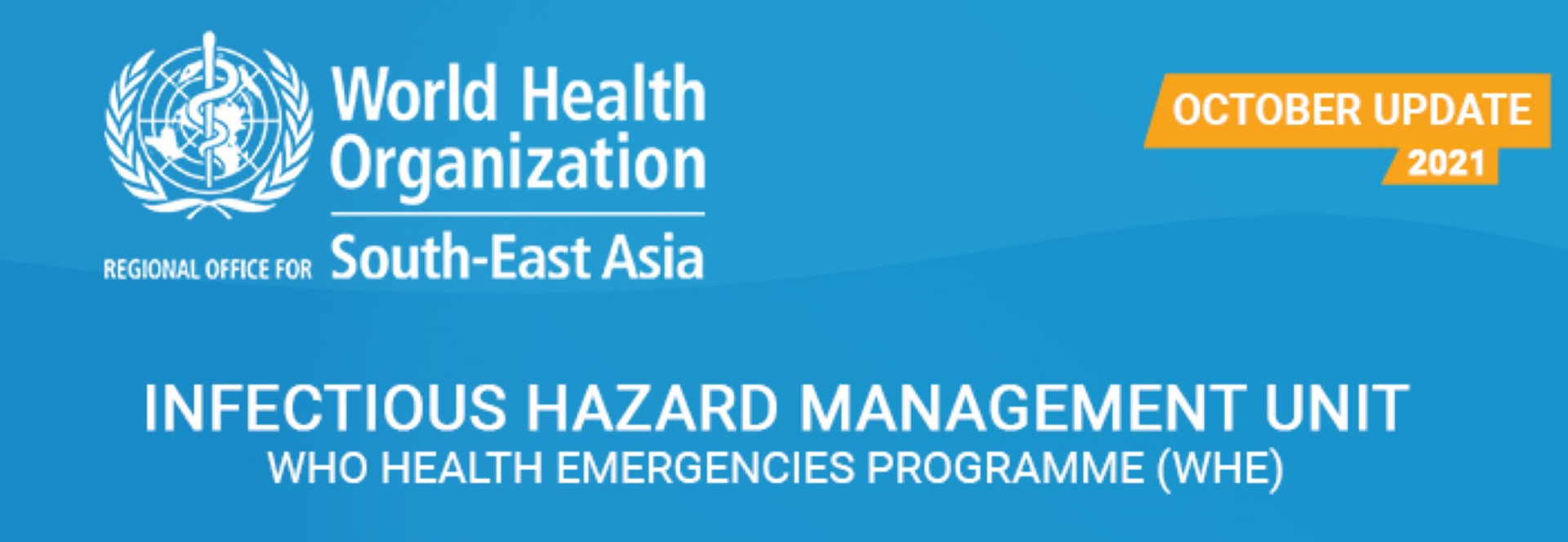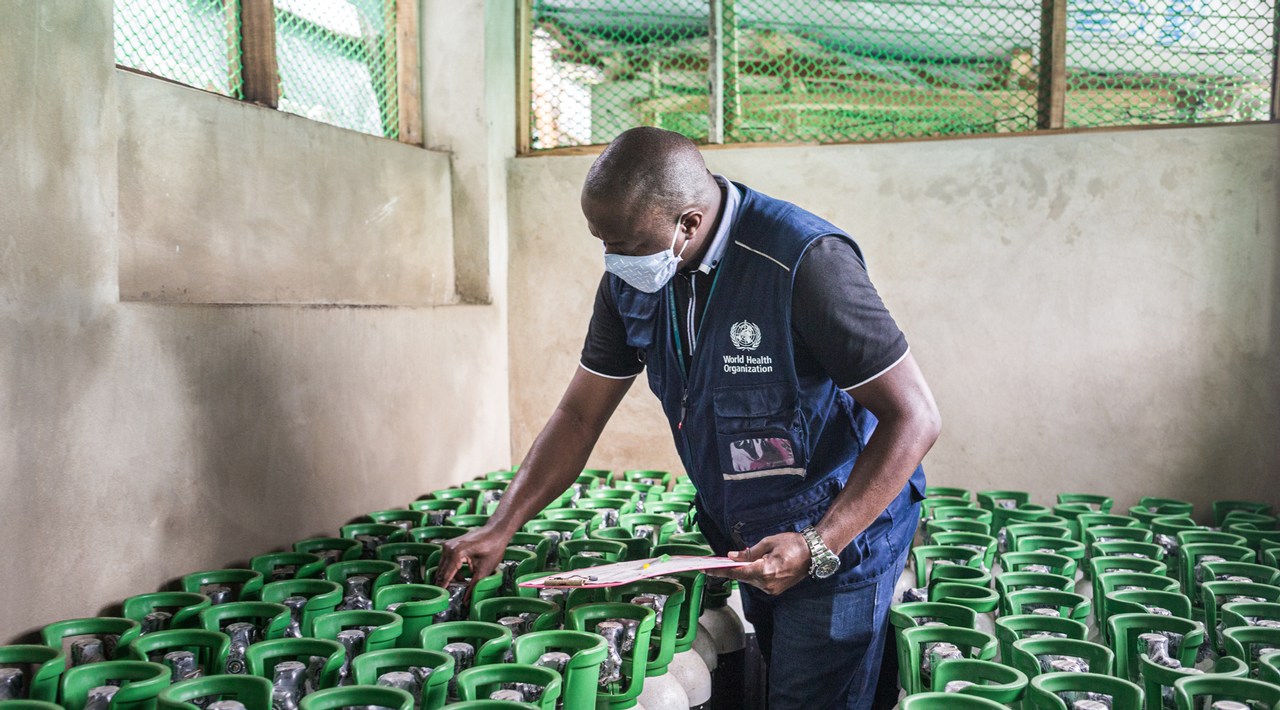
.IN THE SPOTLIGHT

Biomedical activities to strengthen COVID-19 case management
The COVID-19 pandemic highlighted the need for oxygen and other respiratory care supplies and equipment. A consultant in the IHM team in the WHO Regional Office for South-East Asia is providing technical support to the regional Office and Member States for oxygen delivery related services. As of 15 October 2021 all available and trusted reference resources and materials related to oxygen/respiratory care equipment have been compiled; the SEARO-Integrated Management of Adolescent and Adult Illness (IMAI) tool reviewed and an exhaustive database system developed; and a global nomenclature system for medical devices finalized. Read more
WHO’s Health Emergencies Programme (WHE), is capitalizing on efforts made in molecular epidemiology during COVID-19 pandemic response to strengthen sequencing capacities for all high threat pathogens in the short and medium term. The goal being to strengthen preparedness for and response to future outbreaks/pandemics due to high threat infectious hazards.As of October 2021, nine countries in the region have submitted genetic sequencing data for SARS-CoV-2 to the Global Initiative on Sharing All Influenza Data (GISAID) database. Read more
UPCOMING MEETINGS AND EVENTS
- 15th Steering Committee Meeting of the Emergency Management Centre for Animal Health (EMC-AH) of the Food and Agriculture Organization of the United Nations (FAO) on Tuesday, 23 November from 13.00 to 16.00 hrs and Wednesday 24 November 2021 from 13.00 to 15.00 hrs Rome time.
- FAO-OIE-WHO Global Technical Meeting on MERS-CoV and other emerging zoonotic coronaviruses on 15–16 November 2021 from 12:00-17:00 CET.
- Webinar on “Experience sharing on creating national diagnostics networks and implementation of new tools”, a first of series of webinars, jointly organized by International Atomic Energy Agency (IAEA) and WHO-Regional Office for South-East Asia to support COVID-19 testing laboratories in Asia Pacific Region.
RESOURCES
- Online course on influenza prevention and control with tools related to seasonal influenza vaccines, diagnostics, and therapeutics
- Pandemic Influenza Preparedness Framework: 18-month progress report, 01 Jan 2020-2030, June 2021
https://www.who.int/southeastasia/outbreaks-and-emergencies/infectious-hazard-management
